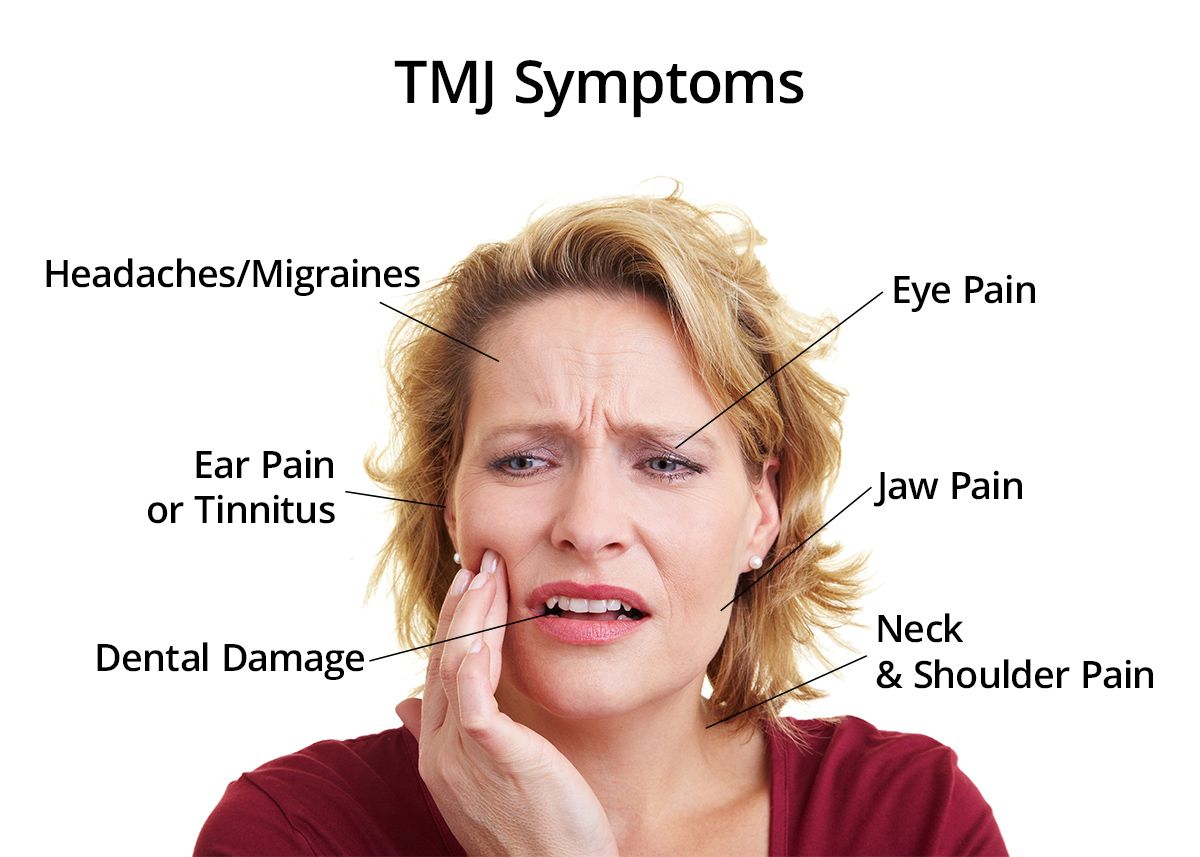Understanding TMJ Disorder Symptoms and Causes
 The temporomandibular joint (TMJ) is located just in front of the ears. It connects your lower jaw to the upper jaw, and allows for up and down and side to side movement. When patients begin experiencing chronic pain in the jaw area, it is referred to as TMJ disorder, or TMD.
The temporomandibular joint (TMJ) is located just in front of the ears. It connects your lower jaw to the upper jaw, and allows for up and down and side to side movement. When patients begin experiencing chronic pain in the jaw area, it is referred to as TMJ disorder, or TMD.
Here, we have outlined a comprehensive list of TMJ disorder symptoms and causes. At our Staten Island, NY, practice, Dr. Joseph T. Mormino offers a variety of different TMD treatment methods. He will work to find and treat the root cause of your TMD, as well as alleviate your symptoms.
TMJ Disorder Symptoms
One of the first symptoms of TMJ disorder is pain in the jaw. You may feel pain when you open or close your mouth. You may also experiencing a popping or locking sensation, which makes it difficult and uncomfortable to open and close your mouth. In addition, you may also experience:
- Chronic headaches or migraines
- Earaches or a ringing sensation in the ears (known as tinnitus)
- Generalized pain in the neck and shoulders
- Pain behind the eyes
- Damage to your teeth, ranging from enamel erosion to cracks and fractures
These symptoms are not only painful and frustrating. They can also interfere with your sleep and your daily tasks, including your ability to work and drive. While it is best to seek treatment before the pain becomes too severe to perform daily functions, if you find yourself in serious pain, please contact our office to schedule an appointment. Dr. Mormino will conduct a thorough examination to determine the cause of your TMJ pain.
TMJ Disorder Causes
Unfortunately, pinpointing the cause of your TMD is not cut and dry. In some cases, there is no clear cause. There are several conditions, however, that can contribute to TMD and the painful symptoms associated with the disorder. These conditions include:
- Bruxism, or teeth grinding, as well as teeth and jaw clenching
- Dislocated TMJ
- Bite misalignment
- Arthritis
- Worn cartilage in the TMJ
- Hormones
- Trauma from an injury
- Heredity
A lot of TMJ pain is stress-related. Conditions such as bruxism and clenching teeth are often worse when we are under a lot of stress.
Diagnosing and Treating TMD
Dr. Mormino will physically examine your teeth, jaw, face, and neck for signs of TMD. He will also take x-rays of your jaw. He may ask questions about your symptoms, as well as your lifestyle to determine if your pain is stress-related. Treatment will depend on the cause of your TMD, if Dr. Mormino can detect a cause.
If bruxism or clenching is the culprit, Dr. Mormino may recommend an oral appliance such as a night guard. This will not only relieve pressure on your jaw, but it will also protect your teeth from damage. If misalignment is to blame, he may recommend orthodontic treatment. He may also recommend stress-relief techniques in addition to other treatments so you can make a full recovery.
Relieve Your TMD Pain Today
If you are suffering from any of the symptoms of TMD, contact our office today to schedule an appointment.


